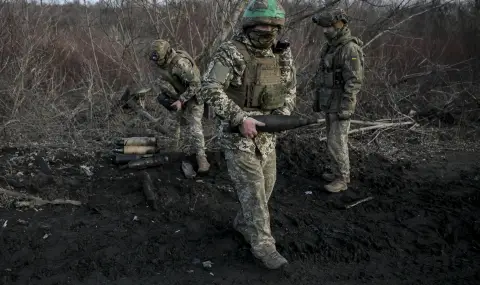In 2024, 66,200 new criminal cases were filed in Ukraine for unauthorized departure from a unit or place of military service (voluntary desertion, Article 407 of the Criminal Code of Ukraine) - this is what the statistics published these days by the Prosecutor's Office of Ukraine showed. 23,200 new investigations have been opened under the stricter article on desertion (Article 408 of the Criminal Code).
The most widespread crime
The number of criminal cases under both articles increased 3.7 times last year, making desertion the most widespread crime - they account for 22% of all crimes registered in Ukraine.
This means that criminal cases for desertion from the army are ahead of the most common thefts (55,600), fraud (nearly 65,000) and the number of premeditated murders (52,200) due to the war.
By the summer of 2024 desertion and voluntary departure from the military unit or place of service in the Ukrainian army have taken on alarming proportions. The State Investigation Bureau was unable to investigate tens of thousands of criminal cases, and the army's legal service was unable to detect and detain deserters.
Amnesty instead of punishment
Then the military asked the deputies to abandon the policy of strict persecution of deserters, introduced in early 2023 at the request of the then commander-in-chief Valery Zaluzhny. At the same time, commanders were ordered to be more sensitive to the problems of their subordinates, to prevent new desertions, and to facilitate the return of those who had already left their units. A law passed in early September promised fugitives amnesty and closure of criminal cases if they returned voluntarily.
On Thursday, January 9, the Verkhovna Rada of Ukraine extended by another eight weeks - until March 1, 2025 - the deadline for a simplified regime for returning to the ranks of the Ukrainian Armed Forces. The simplified regime in question for servicemen who have deserted or left the military for the first time was adopted in late November and was supposed to be in effect until the end of 2024. It provided for the deserters to be reinstated to service without waiting for the official conclusion of criminal investigations against them, with all monetary payments and benefits being restored to them within 72 hours after they established contact with the commander.
It is not clear what proportion of those who deserted or self-dismissed from military service took advantage of the amnesty - neither the Army General Staff nor the Army Legal Service provide such information, citing the secrecy of the data. The urgent need for new recruits forces military commanders to create truly comfortable conditions for the return of deserters. According to officers from the combat brigades that DW spoke to, the returned fugitives are not sent straight to the front line, but are enrolled in reserve battalions, where they are often offered retraining in another military specialty or even treatment paid for by the state.
The amnesty has a positive effect
“When they return to the combat units, the boys actually have the opportunity to choose where and under which commander to serve“, explains to DW Sergey Tsekhotsky, spokesman for the 59th Mechanized Brigade. Another group of “deserters“ is highlighted by Nikolai Varentsov, deputy commander of the 68th Guards Brigade: “There is a large group of fighters who were simply late for leave, for treatment in a hospital and formally violated the law. Such boys were usually afraid that they would end up in prison and did not return at all. Now the new rules have a very positive effect on them“, he assures.
At the same time, Varentsov admits that more and more people are fleeing the front line “because they have seen hell“. One of them told him the following: “It is better for them to bring me food in prison, but for me to be alive“.
Author: Igor Burdikha
